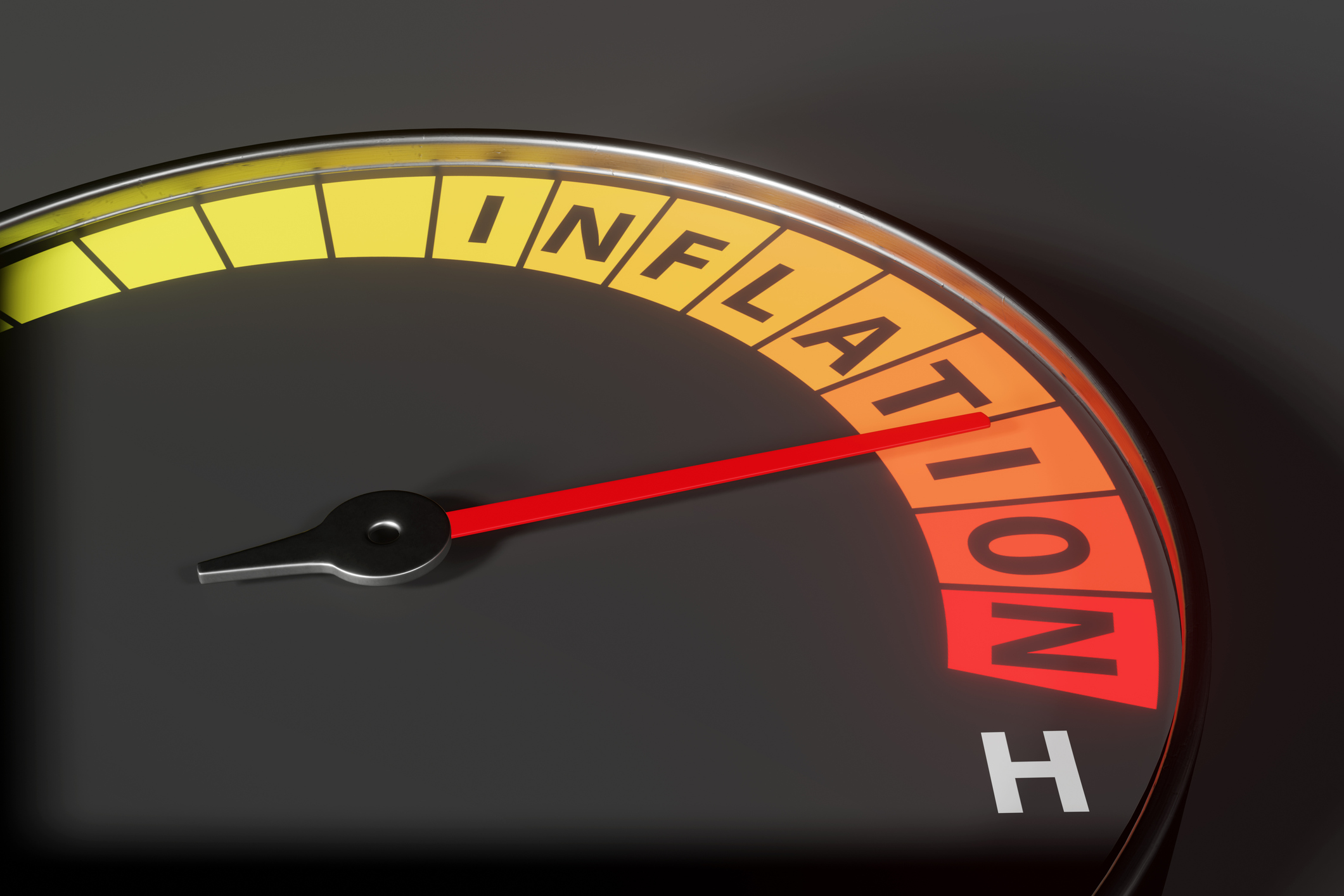Milwaukee Sales Tax Increase: What it Means for Residents
A Milwaukee sales tax increase is coming soon. Here’s how a higher sales tax in the city could affect residents.


Profit and prosper with the best of Kiplinger's advice on investing, taxes, retirement, personal finance and much more. Delivered daily. Enter your email in the box and click Sign Me Up.
You are now subscribed
Your newsletter sign-up was successful
Want to add more newsletters?

Delivered daily
Kiplinger Today
Profit and prosper with the best of Kiplinger's advice on investing, taxes, retirement, personal finance and much more delivered daily. Smart money moves start here.

Sent five days a week
Kiplinger A Step Ahead
Get practical help to make better financial decisions in your everyday life, from spending to savings on top deals.

Delivered daily
Kiplinger Closing Bell
Get today's biggest financial and investing headlines delivered to your inbox every day the U.S. stock market is open.

Sent twice a week
Kiplinger Adviser Intel
Financial pros across the country share best practices and fresh tactics to preserve and grow your wealth.

Delivered weekly
Kiplinger Tax Tips
Trim your federal and state tax bills with practical tax-planning and tax-cutting strategies.

Sent twice a week
Kiplinger Retirement Tips
Your twice-a-week guide to planning and enjoying a financially secure and richly rewarding retirement

Sent bimonthly.
Kiplinger Adviser Angle
Insights for advisers, wealth managers and other financial professionals.

Sent twice a week
Kiplinger Investing Weekly
Your twice-a-week roundup of promising stocks, funds, companies and industries you should consider, ones you should avoid, and why.

Sent weekly for six weeks
Kiplinger Invest for Retirement
Your step-by-step six-part series on how to invest for retirement, from devising a successful strategy to exactly which investments to choose.
The Milwaukee Common Council voted to implement a new Milwaukee sales tax increase. The vote for a city sales tax came shortly before the approval for an increase in Milwaukee County's sales tax rate.
Supporters of the new city tax say the tax increase will help fund essential workers and services. Without it, Milwaukee could face mass layoffs and a lack of necessary services for city residents.
“Without a major change in the structure of our finances, we will experience draconian cuts to our police, our fire department, and our libraries,” said Milwaukee Mayor Cavalier Johnson in a June State of the City Address.
From just $107.88 $24.99 for Kiplinger Personal Finance
Become a smarter, better informed investor. Subscribe from just $107.88 $24.99, plus get up to 4 Special Issues

Sign up for Kiplinger’s Free Newsletters
Profit and prosper with the best of expert advice on investing, taxes, retirement, personal finance and more - straight to your e-mail.
Profit and prosper with the best of expert advice - straight to your e-mail.
Milwaukee Sales Tax Increase
The city of Milwaukee is set to impose its own sales tax rate of 2%. This means Milwaukee shoppers will pay $2.00 on every $100 purchase of taxable goods and services. City sales taxes aren’t uncommon. For example, Illinois has one of the highest sales tax rates in the U.S., partly due to Chicago’s local sales tax. Many other cities have local sales taxes, too.
- New York City also has a separate sales tax.
- Kansas City imposes an additional sales tax.
- Tacoma, Washington has a local sales tax.
- Long Beach, California charges an additional sales tax.
Milwaukee County Sales Tax
However, Milwaukee residents are in for a double whammy next year, since the Milwaukee County Board of Supervisors approved a sales tax increase from 0.5% to 0.9%. No other county in Wisconsin is permitted to raise the county sales tax rate above 0.5%.
So, what does this mean? Milwaukee will become the highest-taxed city in Wisconsin (at least when it comes to sales taxes).
What is the Sales Tax in Milwaukee?
Currently, Milwaukee shoppers pay a 5.5% sales tax rate, which includes the state sales tax rate of 5% and the county sales tax rate of 0.5%. When the new Milwaukee sales taxes go into effect, shoppers will pay 7.9% (due to the city and county increases).
Although the city of Milwaukee’s new sales tax will only cost residents $0.02 on every dollar, the Wisconsin Department of Revenue projects the 2% sales tax will make the city more than $193 million in the first year alone. And the the county is estimated to rake in an additional $82.2 million from the Milwaukee County sales tax increase.
Milwaukee Fiscal Crisis
The Milwaukee sales tax increase comes as lawmakers try to solve a budget crisis. Without additional revenue, the city may need to lay off essential workers, such as police officers and public healthcare workers. The nearly $194 million generated from the new city sales tax will help these workers keep their jobs, and in turn, will allow Milwaukee residents continued access to essential services.
What is the Milwaukee Pension Crisis?
Increasing pension payments have been an issue since at least 2021. Milwaukee received some financial relief from pandemic funding, but that funding was only a short-term solution. The additional sales taxes residents will soon pay will help fund pensions for city and county workers.
When Will Milwaukee’s Sales Tax Go Into Effect?
Milwaukee residents won’t face a city sales tax until January 1, 2024. And a Milwaukee County sales tax increase will be implemented at the same time.
So, shoppers still have some time to make large purchases without paying more in taxes. For example, if you purchase a $20,000 vehicle in Milwaukee in 2024, you could spend $1,580 in sales taxes. But purchasing a $20,000 vehicle in 2023 would result in only $1,100 in sales tax.
Profit and prosper with the best of Kiplinger's advice on investing, taxes, retirement, personal finance and much more. Delivered daily. Enter your email in the box and click Sign Me Up.

Katelyn has more than 6 years of experience working in tax and finance. While she specialized in tax content while working at Kiplinger from 2023 to 2024, Katelyn has also written for digital publications on topics including insurance, retirement, and financial planning and had financial advice commissioned by national print publications. She believes knowledge is the key to success and enjoys providing content that educates and informs.
-
 What to Expect from the January CPI Report
What to Expect from the January CPI ReportThe January CPI report will be released Friday morning. Here's what economists expect the inflation data to show.
-
 How to Open Your Kid's $1,000 Trump Account
How to Open Your Kid's $1,000 Trump AccountTax Breaks Filing income taxes in 2026? You won't want to miss Form 4547 to claim a $1,000 Trump Account for your child.
-
 In Arkansas and Illinois, Groceries Just Got Cheaper, But Not By Much
In Arkansas and Illinois, Groceries Just Got Cheaper, But Not By MuchFood Prices Arkansas and Illinois are the most recent states to repeal sales tax on groceries. Will it really help shoppers with their food bills?